Creed and Alter Bridge guitarist Mark Tremonti is one of the most jaw-dropping virtuoso guitarists around, but he’s always been about the song, first and foremost. “I’ve been a songwriter since I started playing the guitar—I spent more time writing than I did practicing the guitar,” says Tremonti. For his debut solo album, All I Was, Tremonti takes it to the next level and casts himself in the role of lead singer for the first time ever. While there are many moments of mind-boggling guitar pyrotechnics, All I Was showcases Tremonti’s skills as a singer and songwriter, and reflects a heavier side of his musical personality that isn’t necessarily apparent in Creed or Alter Bridge’s songs—a side informed by his early diet of Pantera, Metallica, and Slayer. “It’s not a metal record by any means but it’s heavier than both bands. I had all of these ideas that were just collecting dust. Ideas that would never see the light of day that I wanted to catalog and just get out there. So I decided to take the chance. I had a break in my schedule and I figured it would be the perfect time to do it,” he explains.
Tremonti’s sense of “the perfect time” probably differs from most of us, as he couldn’t possibly be busier than he is at the moment. This interview took place on opening night of the Creed album tour, which sees the band celebrating the 15th anniversary of My Own Prison by playing songs from that album and Human Clay in their entirety. Two days prior to our interview, Tremonti played All I Was< live, song by song, for the filming of a video, and just a couple of weeks earlier, he had returned home from an Alter Bridge Australia tour. Couldn’t he have recorded his solo album when Creed had a five-year hiatus, you ask?
Tremonti gives us a firsthand look at the making of All I Was, discusses juggling his solo career with his bands, and unveils his secret desire to be a blues/fusion guitarist. Plus, we check in on a rumor that Wolfgang Van Halen might be onboard as bassist for Tremonti’s solo tour.
All I Was marks your debut as lead vocalist. Is this something you’ve always wanted to do?
It got to a point where I felt like it was my time. As you’re writing songs, you’re also singing them anyway and although I wasn’t a good singer—I’m still not a great singer—when I went into the studio and played through some ideas with Eric [Friedman, guitar and bass] and Garrett [Whitlock, drums], right off the bat, it flowed well and we had a blast doing it.
On the surface, it would seem like a solo record should be an opportunity for you to really go crazy with your solos. But you don’t go as overboard as you probably could have.
I do my best to write for the songs and I think all of my solos on this one fit the songs. If it’s a heavy song it’s going to have a heavy solo, if it’s a slow song, It’ll have a more melodic solo.
Did you develop this “play for the song” ethos from working with Creed and seeing firsthand what it takes to achieve enormous commercial success?
When you’re a kid you want to sweep and tap and go to the guitar store and pick up a guitar to show off some rad lick. But as you get older, you just want to play with class and make sure that your identity is put forth on these songs.
On some of the early Creed stuff, I actually wasn’t very well versed in guitar soloing. Back then it was kind of a mystery to me. The solos consisted of the few licks I had learned from instructional DVDs that I glued together to make a solo work somehow. Now, years and years later, I get a chance to really speak on the guitar. But it takes a lot of years of playing and experimenting to really sound like yourself on the guitar. I’m still trying to get there. I think every guitar player is always trying to improve—to really be able to express yourself as opposed to just regurgitating some exercise.
Did you use any material that you always wanted to do with Creed or Alter Bridge, but could never get the other parties to agree on?
Yeah, probably about half of the stuff on it is material that I played at many writing sessions with the other guys. Songs I probably threw at them 10 times but never made it to an album. That was the green light for me to use the songs because I don’t want to take a song that the guys would really love to have and put it on my solo record without giving them the chance to hear the parts first.
Where does your loyalty lie? Like, if you came up with a song that you knew was killer, who would get first dibs?
It depends on whatever cycle I’m on at the time, because whatever I’m working on at the time, I give 110 percent. If I had just come out with an Alter Bridge record then it would go to Creed. If I had just come out with a Creed record then it would go to Alter Bridge. But along those lines, I do try to make the Creed and Alter Bridge material sound different. When I write, I go back and log my ideas and by that point, I’ve pretty much classified it as Creed or Alter Bridge material.
Is there a sense of competition between the three projects?
No, they’re all just different vibes. One of our biggest challenges was to make Alter Bridge sound different than Creed and I think, by our second record, we really came up with a different sound.
How would you describe what the difference is between these projects?
Between Creed and Alter Bridge? You’ve got a baritone in one band and a tenor in the other. Creed is much more straightforward and commercial sounding. Alter Bridge is a little bit more experimental and has a lot of the duo guitar soloing stuff whereas Creed always had the single guitar going on. My solo stuff is a lot different than both bands—it has a little more of a metal influence to it. A lot of my roots are in old speed metal and thrash.
Creed touring guitarist Eric Friedman is also onboard for your solo project. Does having him on your solo project make it hard to mentally keep the projects separate?
No, because he’s never really been in the band or been involved in the writing of the music. He just comes on the road with us and plays and sings backups. He’s a great player. I think all of those years with Alter Bridge really spoiled us—having two guitarists with completely different styles allowed us to have a really full sound. When we went back to Creed we had to pull Eric in.
The rumor was that Wolfgang Van Halen was going to be on the road with you. Is that going to happen?
We would have loved it. He actually sat with Eric and Garrett and learned a bunch of the songs and played them perfectly. He’s heard the record and digs it but he’s out with Van Halen. What can you do?
Let’s talk gear now. I’m assuming that your signature PRS guitar is your main guitar.
Yeah, my signature model is my main guitar. PRS also just made me a baritone guitar that’s just beautiful. I actually have two USA-made PRS baritone guitars, which are very, very hard to come by because they don’t have it doweled into their machinery. They have to make them all by hand.
A few months back, Brent Mason told us that he uses the PRS SE Mike Mushok baritone [“Brent Mason: A Chameleon in Tune Town,” February 2012].
Yeah, I have one of those as well and they’re great. But the American handmade ones are just that much more special—you can’t beat it. PRS also made me a three single-coil pickup guitar.
How did that come about?
I was talking to Winn [Krozack] at PRS and I said, “You know, the only time I’d ever need something other than a PRS is if I wanted to play something like a Stevie Ray Vaughan or an Albert Collins song. I’d need something like a Tele or a Strat.” It’s a beautiful guitar and they’ve put it into production.
Is it a new signature model?
No, it’s not a signature model.
But they originally made it because of your request, right?
Yeah, I guess originally they made it because of me. They made two different versions of it and they gave one to Carlos Santana and he just gushed over it.
Are you big on effects?
I love delays, so I went and found all of my favorites. My best delay is a Toneczar Echoczar, which is very hard to find. It’s a one-guy shop and another waiting list that you have to do. My favorite new delay—that’s much easier to get a hold of—is the G-Lab delay. In my live rig, I use the T-Rex Replica and I have an SIB Echo Drive at home. I also use an Ibanez Hand Wired Tube Screamer live.
Is there a perceptible difference in sound between the handwired version and the stock version?
Absolutely. The handwired version is warm, rich, and classy. I lined up all of my overdrive pedals—including the Klon Centaur, the holy grail of overdrives—and did a shootout, and I dug the Hand Wired Tube Screamer the best.
What about amps?
I’ve got a Cornford RK100 that I absolutely love—it could be my all-around favorite amp of all time. I recorded the rhythm and lead tones on my solo record with it. I also have a Two-Rock Overdrive Signature that they juiced up the gain for me, and some Rectifiers [Mesa/Boogie Triple Rectifier], which have always been the core of my rhythm tone. There’s also another amp that I discovered this year called the V-Rock by Voodoo Amps. We were on the “Carnival of Madness” tour with Alter Bridge and they brought out one of the amps to our soundcheck. I didn’t expect anything; it was just a random person bringing out an amp. But when I plugged it in, everybody looked over and said, “Damn, that thing sounds great.” So it took over as one of my rhythm amps, alongside the Rectifier, and I get this big wall of sound.
I understand that you checked out some Bludotones at the American Amp Show this past January, and you bought them all.
Oh yeah. I was on a waiting list for about a year before I played those at the amp show. I have the Bludotone Universal Tone. It’s the actual amp that Brandon [Montgomery] had at the amp show. I also have a Bludotone Bludo-Drive, which is out on the road with me now. I actually just put it in my rig yesterday.
Is the Bludo-Drive high gain enough for you?
It’s got all the gain you need. I’m an amp addict. I must have 20 of them. I get on all of the discussion boards and study everything that has to do with amplifiers.
Is it safe to assume that you post anonymously on the boards?
I don’t post, I just read.
Gearbox
Guitars
PRS Mark Tremonti Signature, Taylor K–12, Taylor 614ce, Taylor 12-string
Amps
Cornford RK100, Two-Rock Overdrive Signature, Mesa/Boogie Triple Rectifier, Voodoo Amps V-Rock, Bludotone Universal Tone, Bludotone Bludo-Drive, Dumble
Effects
Toneczar Echoczar, G-Lab SD–1 delay, T-Rex Replica, SIB Echo Drive, T-Rex Tremonti Phaser, Dunlop Uni-Vibe, Morley wah, Ibanez TS808HW Hand Wired Tube Screamer
You don’t seem like a typical Bludotone or Two-Rock type of guy.
I’m also a huge Dumble fan—I own a Dumble. I’m very different at home than I am out live. I have a secret desire to be a bluesman and I’m really bad at it, compared to my heavier, shreddy stuff. I’ve been trying to shift gears for years. I love Robben Ford and Larry Carlton.
That style of music is at the opposite end of the spectrum from what you’re known for.
It’s not the kind of stuff I write but when I’m sitting at home in my studio, that’s the kind of stuff I love to play.
Will you ever release a blues/fusion album?
If I ever get good at it. Myles [Kennedy, singer for Alter Bridge] and Eric [Friedman, guitarist] are both great blues and jazzy kind of players. They’ve got that nailed down. I think I still have a little ways to go.
YouTube It
For a taste of Mark Tremonti tearing it up with Creed and Alter Bridge, check out the following clips on YouTube.com.
Tremonti and Alter Bridge front man Myles Kennedy step on the gas pedal with a killer duet breakdown at 2:24.




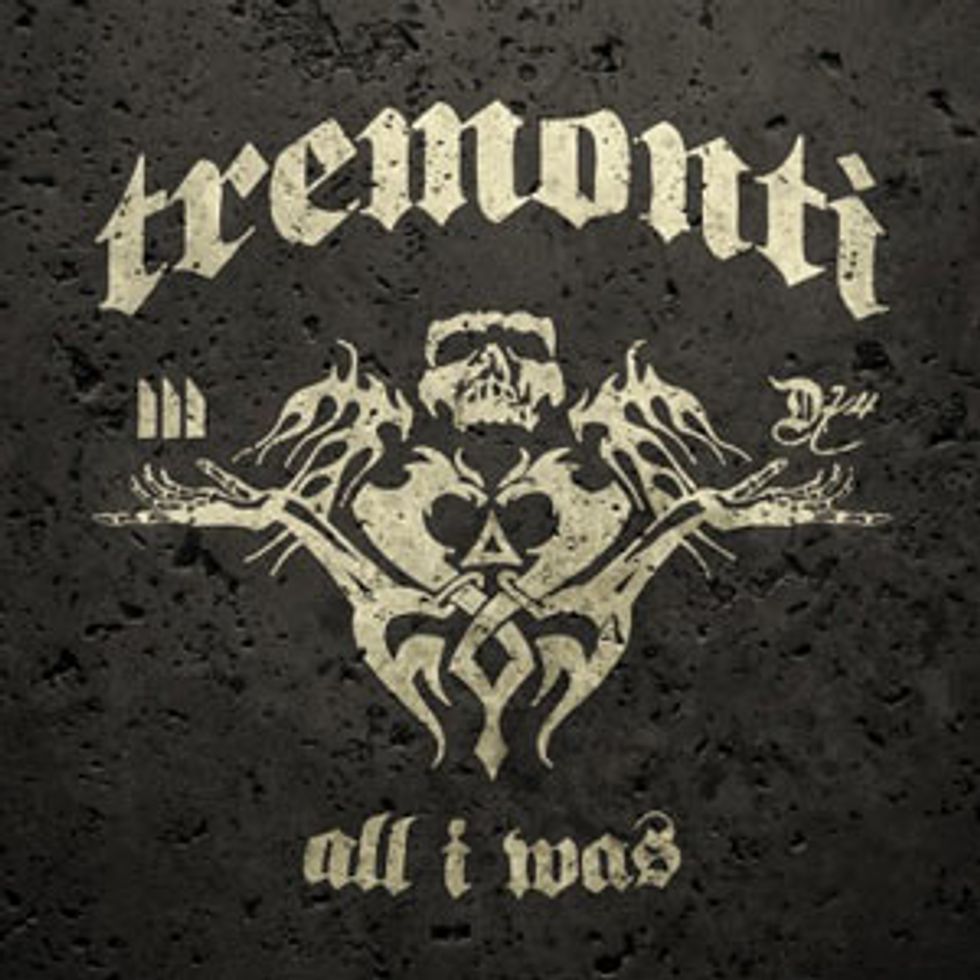




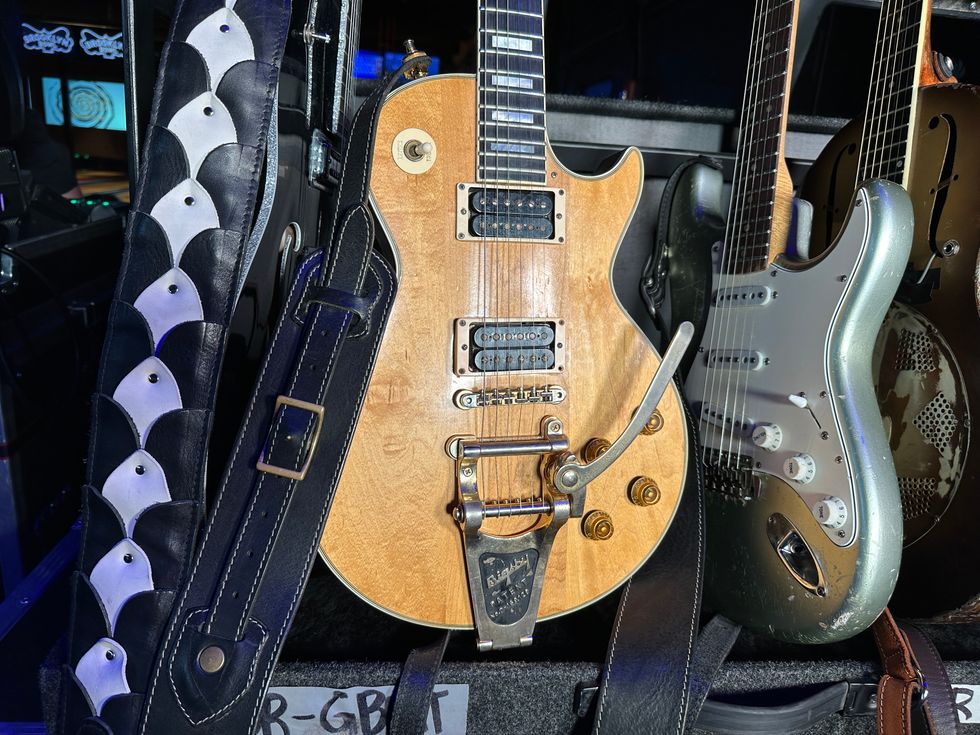
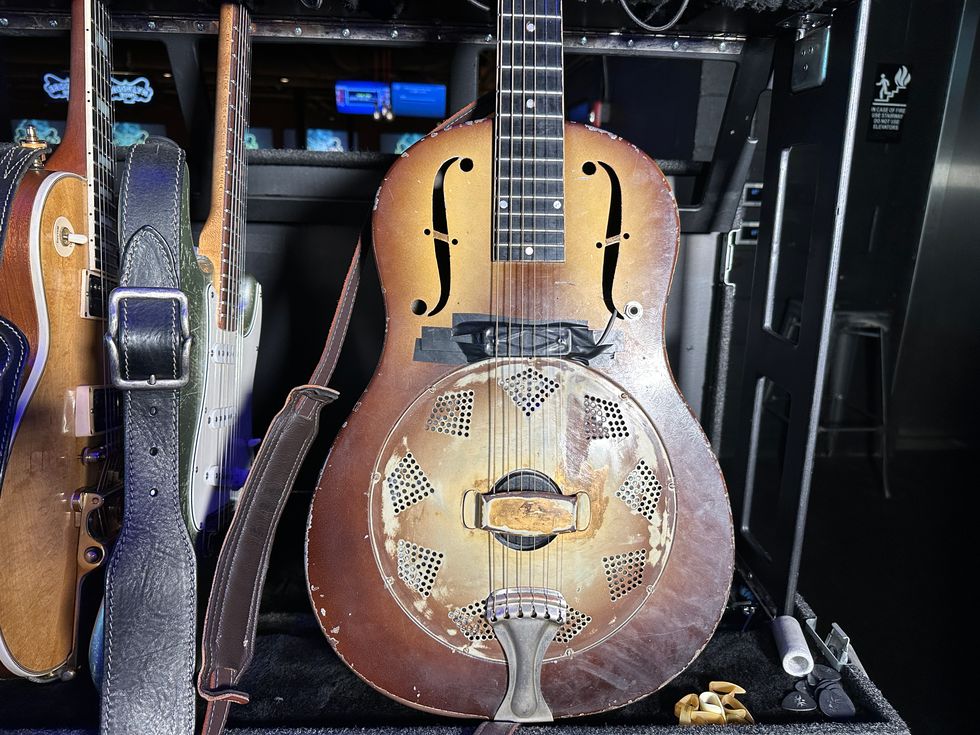
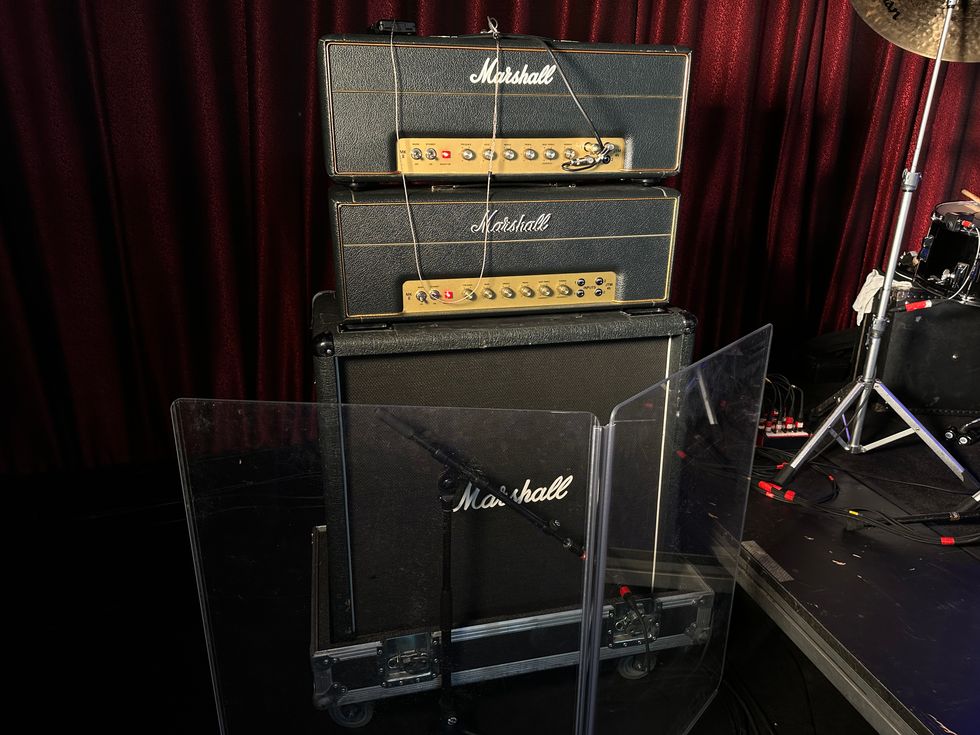
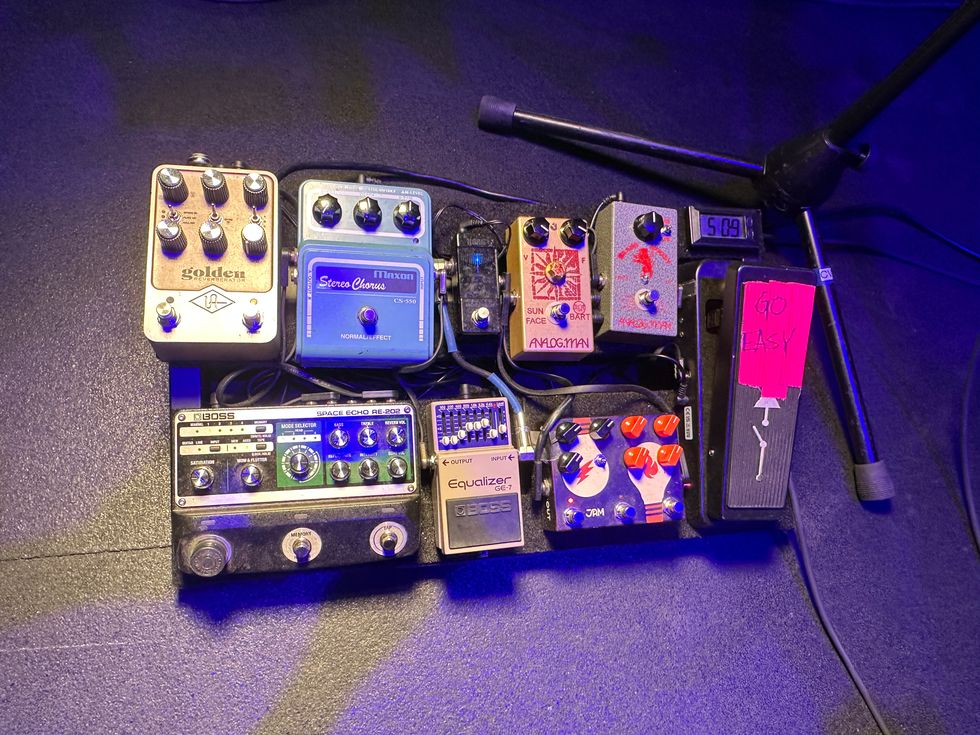
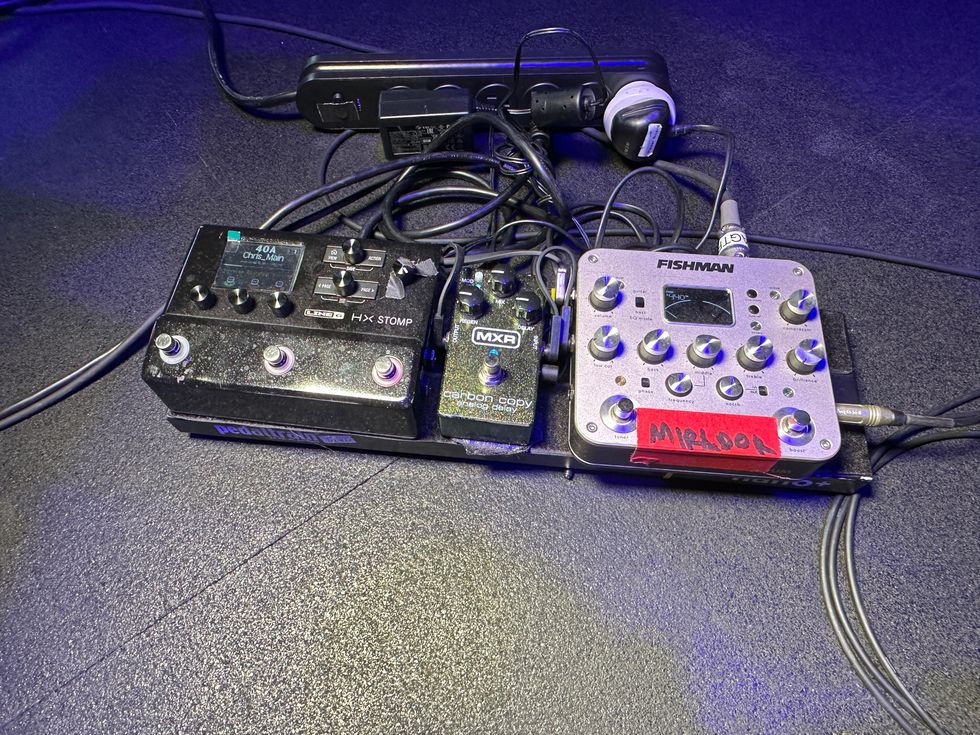
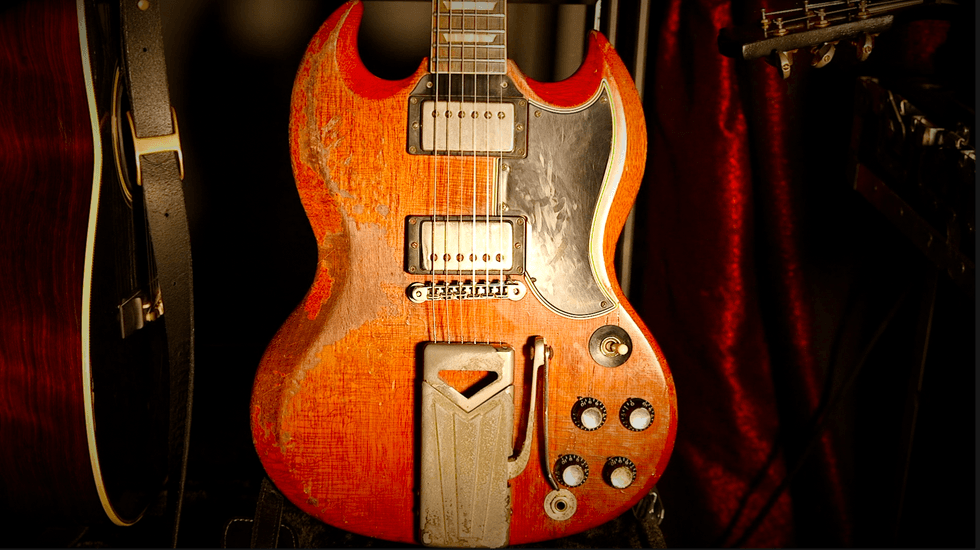
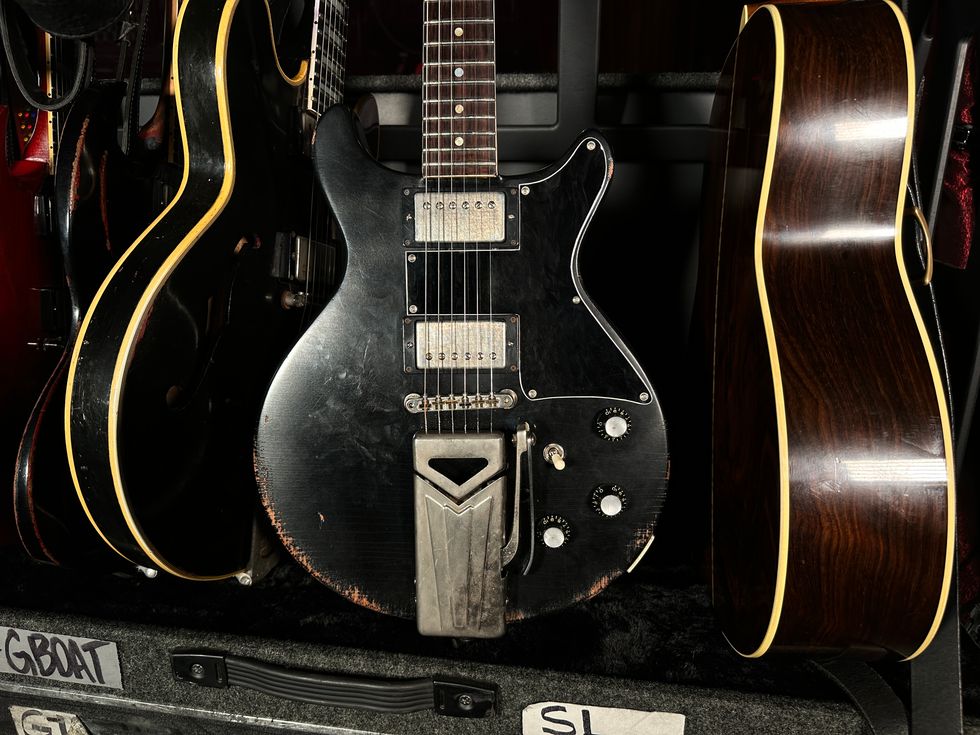
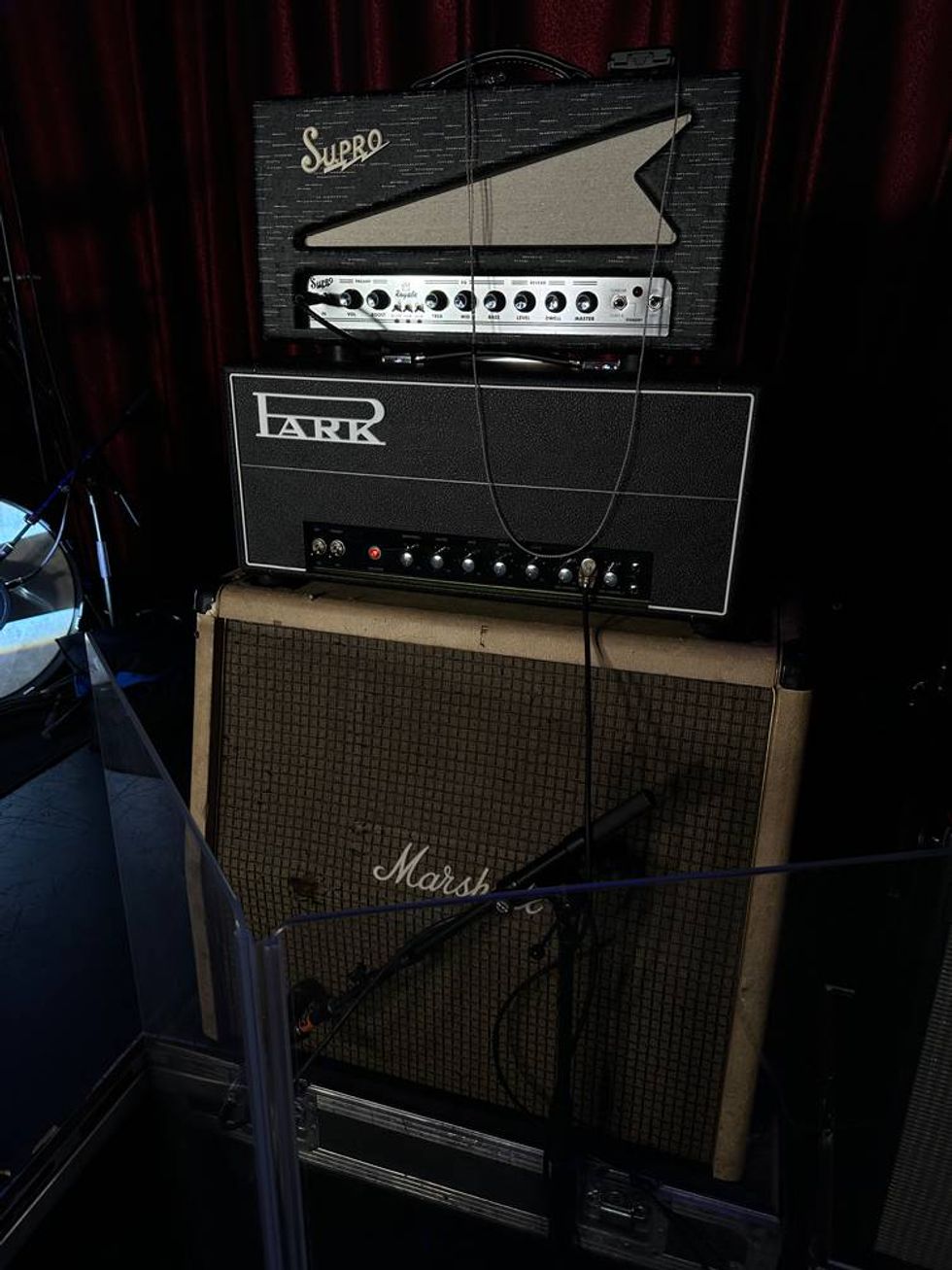
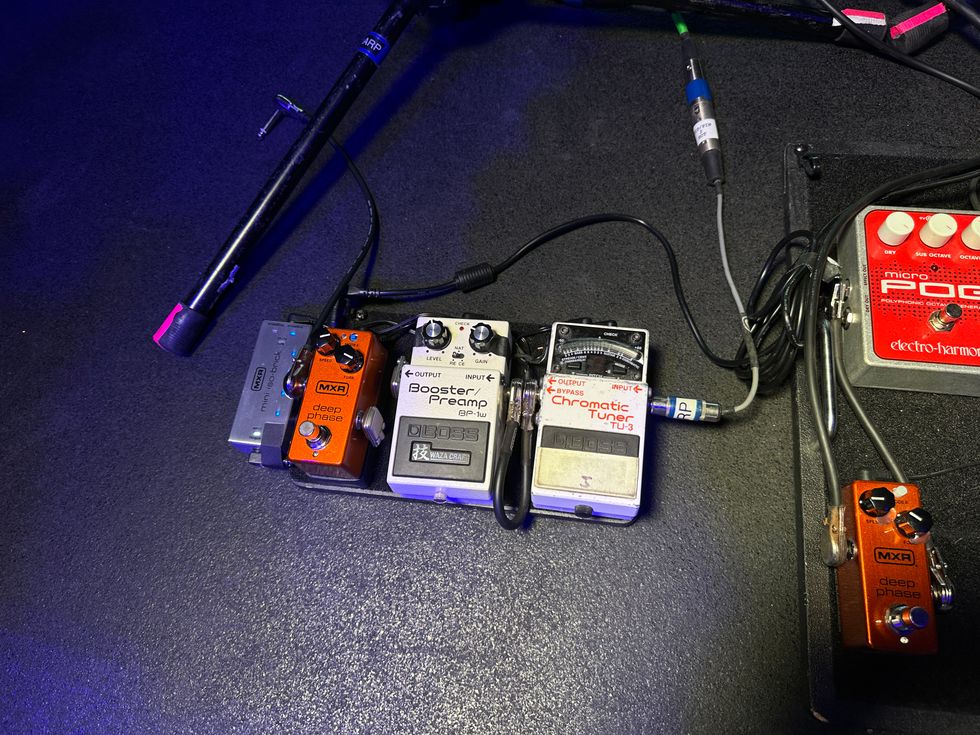
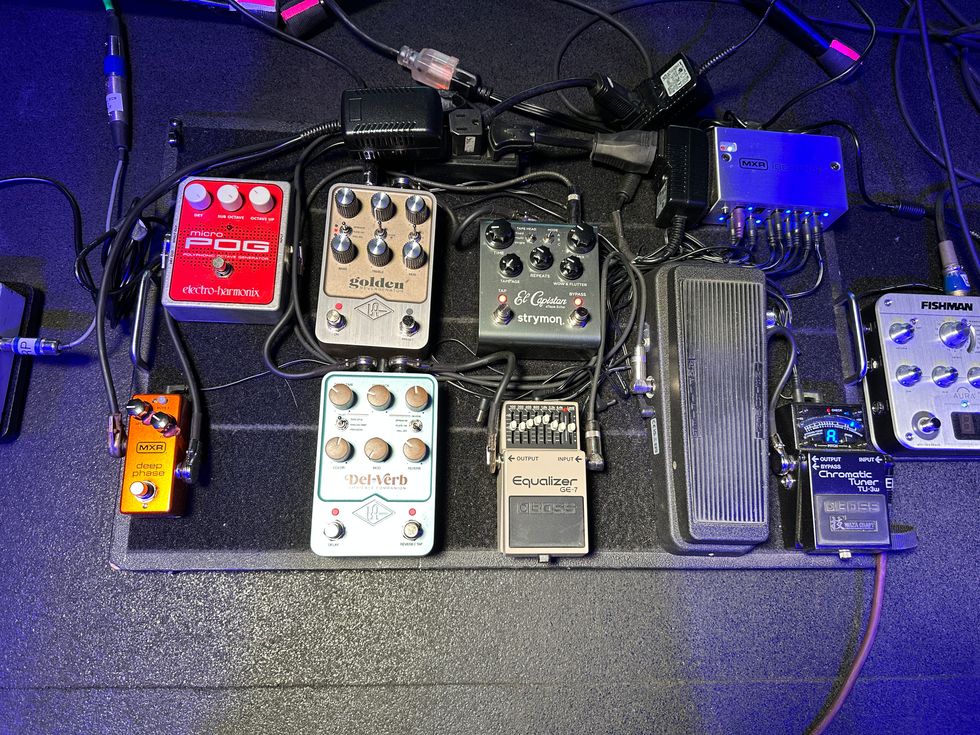
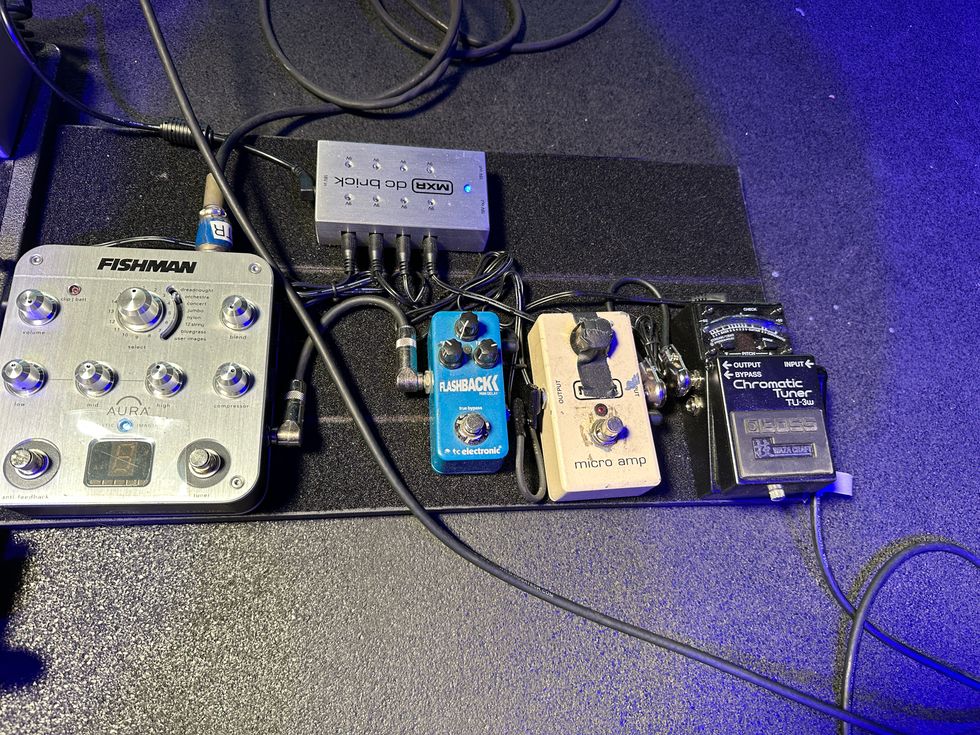

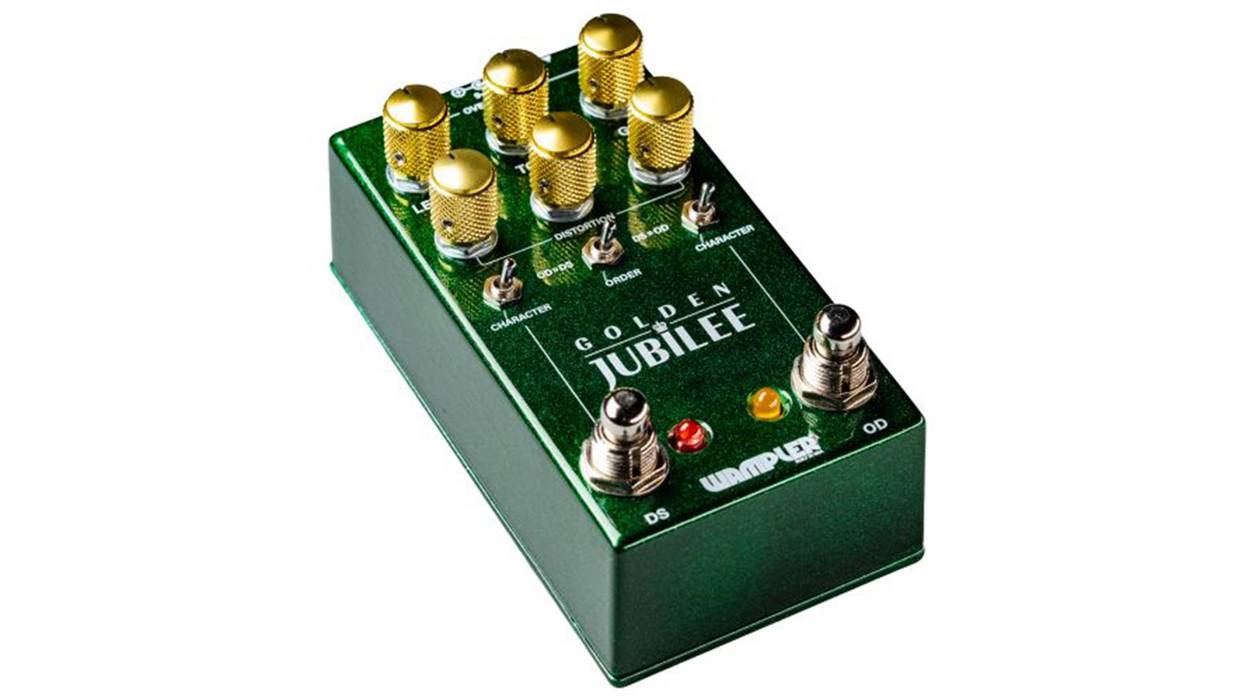
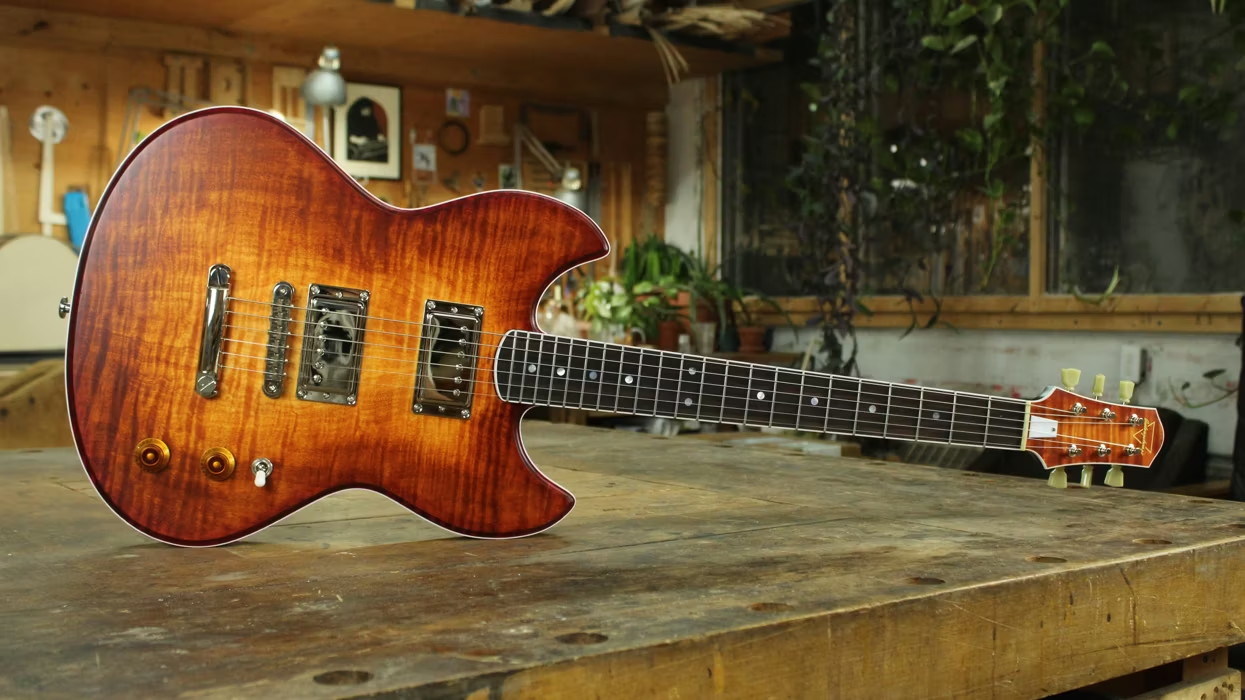
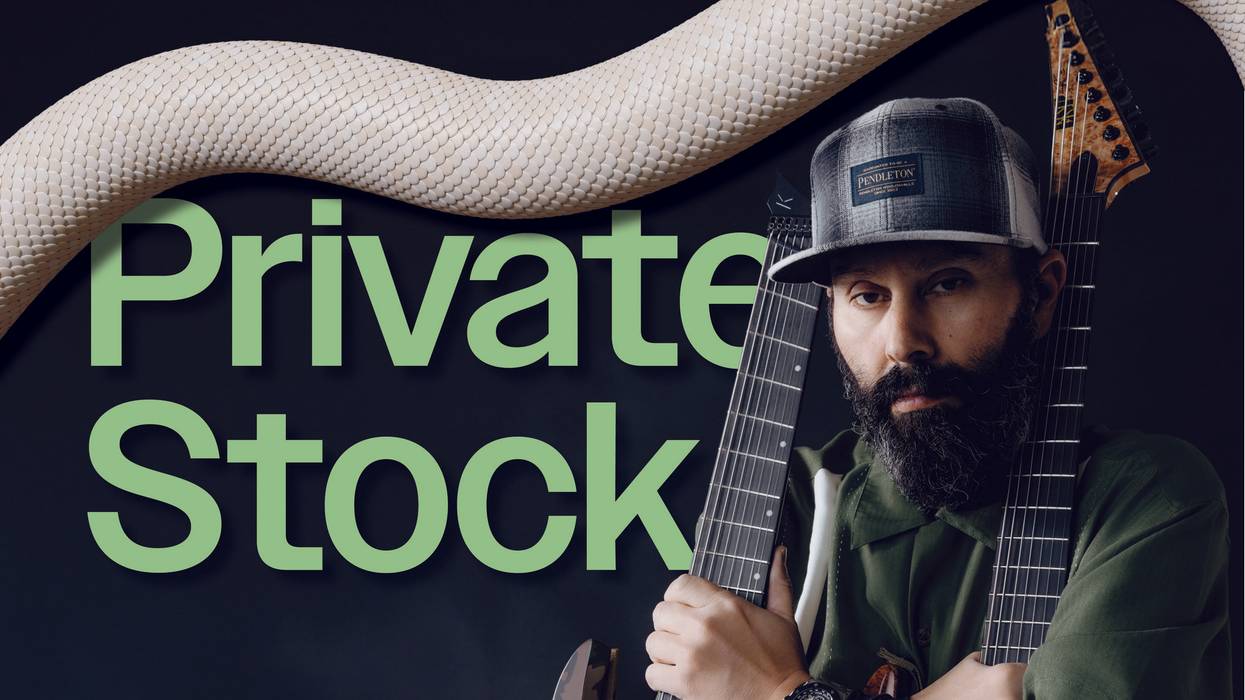
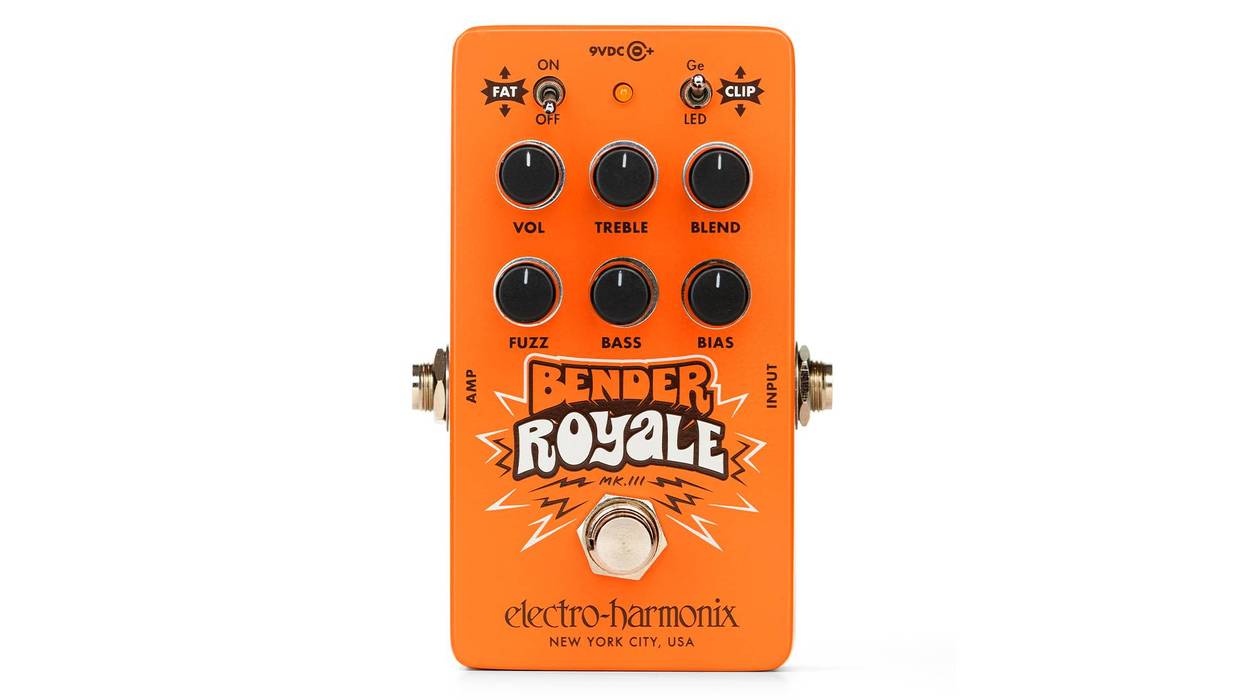
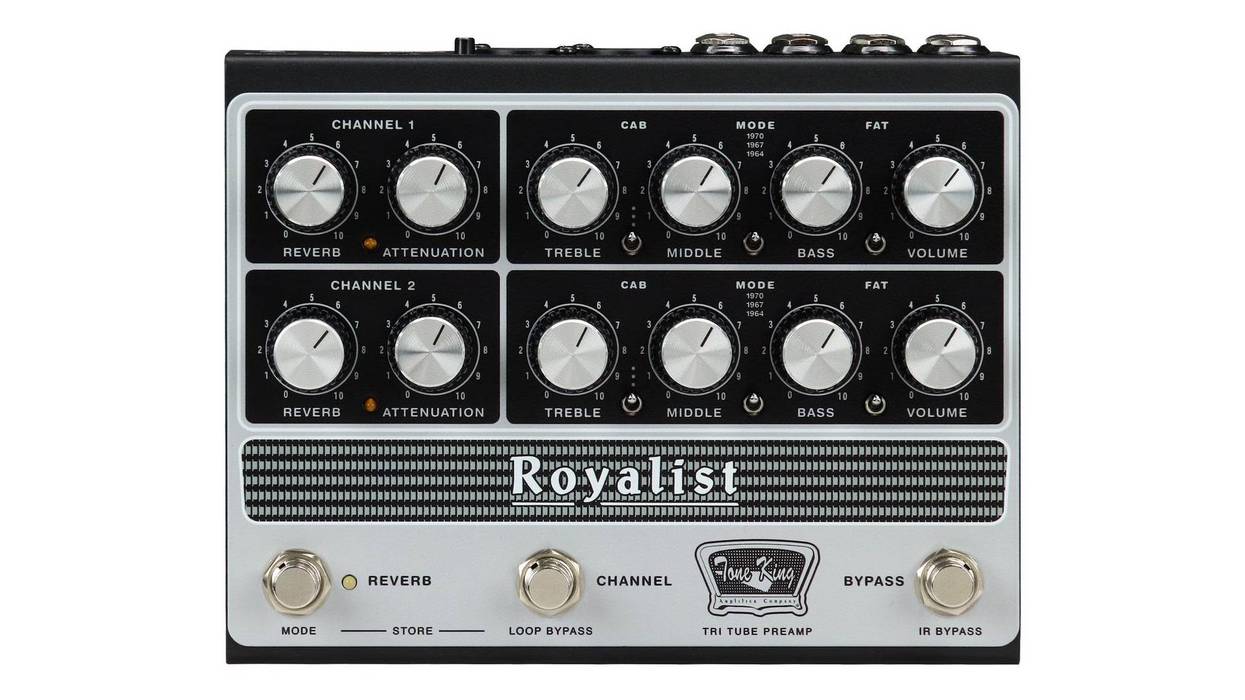
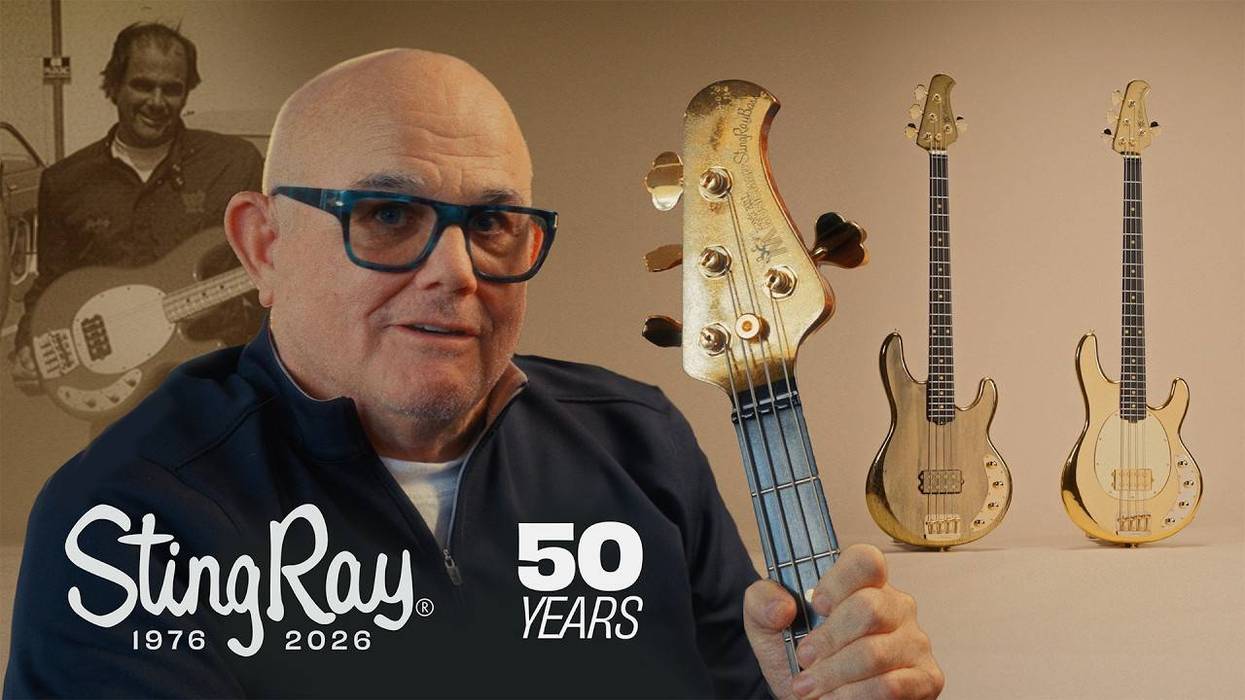




![Rig Rundown: Russian Circles’ Mike Sullivan [2025]](https://www.premierguitar.com/media-library/youtube.jpg?id=62303631&width=1245&height=700&quality=70&coordinates=0%2C0%2C0%2C0)















